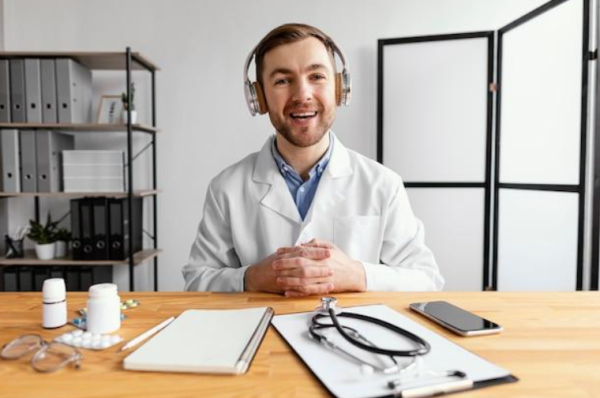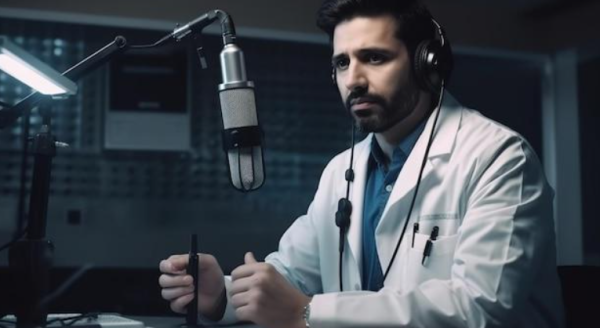
In today’s fast-paced professional world, continuing education is no longer confined to classrooms and conferences. For busy legal and medical professionals, podcasts have emerged as an invaluable resource for staying current with industry developments, earning continuing education credits, and connecting with thought leaders—all while commuting, exercising, or completing daily tasks.
Understanding the Podcast Landscape
According to the law firm behind the Justin Chopin podcast, “The podcast universe has expanded dramatically in recent years, with specialized content available for virtually every niche within law and medicine. This abundance creates both opportunity and challenge: how does one find truly valuable content amidst the noise?”
For legal professionals, podcasts range from broad coverage of legal news to deeply specialized discussions of practice areas like intellectual property, healthcare law, or constitutional interpretation. Similarly, medical podcasts span from general medical news to subspecialty-specific content covering everything from emergency medicine to dermatology to mental health innovations.
Leveraging Technology to Discover Content
Most podcast discovery begins with established platforms. Apple Podcasts, Spotify, Google Podcasts, and Stitcher all offer robust search capabilities and algorithmic recommendations. However, these general-purpose tools may not surface the most relevant professional content without some strategic searching.
To maximize these platforms, use specific professional terminology in your searches. Rather than searching for “medical podcasts,” try “emergency medicine research podcasts” or “healthcare policy updates.” In legal searches, specific practice areas like “family law litigation strategies” or “corporate compliance updates” yield more targeted results than general terms.
Specialized podcast aggregators have also emerged to serve professional communities. Platforms like Himalaya and Luminary offer curated collections that sometimes include exclusive professional content. For medical professionals specifically, services like Audio Digest compile peer-reviewed content that qualifies for continuing medical education credits.
Tapping into Professional Networks
Perhaps the most valuable podcast discovery method lies within existing professional networks. Professional associations in both law and medicine have recognized the podcast medium’s importance, with many now producing their own shows or curating recommendations.
The American Bar Association, American Medical Association, and numerous specialty organizations maintain podcast recommendations or directories on their websites. These curated lists often highlight content that meets rigorous professional standards and educational requirements.
Conferences and continuing education events frequently feature podcast creators as speakers or panelists. Attending these sessions provides insight into podcast quality and relevance before subscribing. Many conference organizers also distribute lists of recommended professional podcasts as part of their materials.
Colleague recommendations remain invaluable. Creating informal podcast sharing channels within your workplace or professional circles can surface hidden gems that algorithms might miss. Consider starting a monthly email thread or messaging channel where team members can share episodes that provided particular value.

Evaluating Podcast Quality
Not all professional podcasts are created equal. For busy professionals, time is precious, making quality assessment critical. When evaluating a new podcast, consider these factors:
Credentials matter. Who hosts the podcast, and what is their standing in the field? The most valuable content typically comes from recognized experts or those with direct access to them through interviews.
Production quality affects comprehension. Poor audio can make even brilliant content unusable, particularly when listening in noisy environments like hospitals or during commutes.
Content currency is essential in rapidly evolving fields. Check release schedules and whether the podcast maintains consistent output with current information. In both law and medicine, outdated information can be worse than no information.
Engagement style varies widely. Some professionals prefer direct, data-heavy presentation, while others value narrative approaches that contextualize information through case studies or patient stories. Sample different styles to determine what best supports your learning preferences.
Integrating Podcasts into Professional Development
The most successful podcast users develop intentional listening strategies. Rather than random consumption, consider creating a podcast curriculum aligned with your professional development goals.
For continuing education requirements, verify whether podcasts offer formal credits before investing time. Many legal and medical podcasts now provide supplementary materials that, when completed, qualify for continuing education units.
Strategic listening matters. Reserve complex, detail-heavy podcasts for times when you can take notes or reflect. Save lighter content for multitasking scenarios. Some professionals find value in re-listening to particularly important episodes, treating them like reusable resources rather than one-time consumption.
Looking Forward
The podcast medium continues to evolve, with video podcasts, interactive elements, and community features becoming more common. These innovations create new opportunities for professional engagement beyond passive listening.
For time-strapped professionals, podcasts represent more than convenience—they offer a way to remain intellectually engaged with one’s field while balancing competing demands. By approaching podcast discovery strategically and evaluating content critically, legal and medical professionals can transform ordinary moments into opportunities for meaningful professional development.









